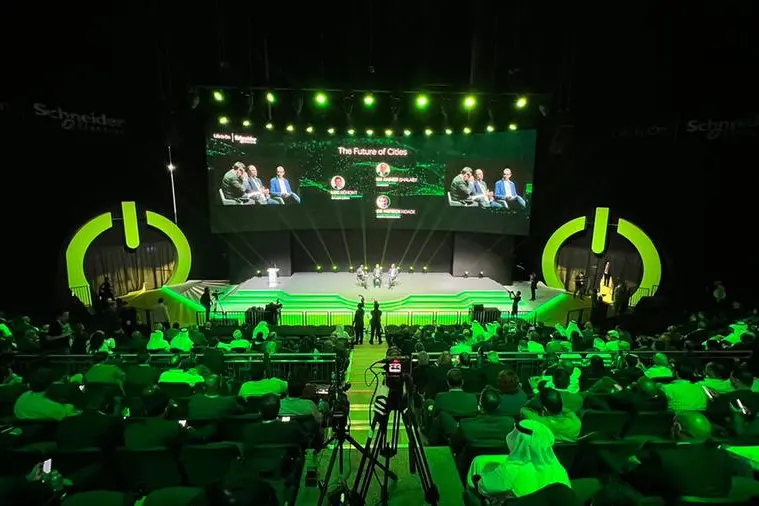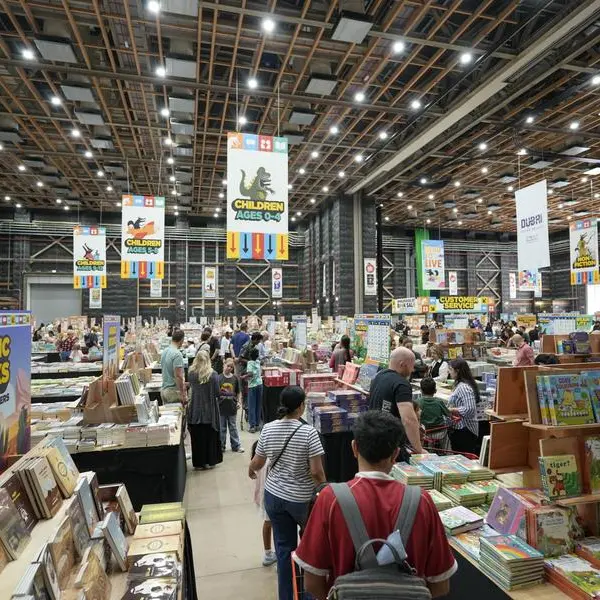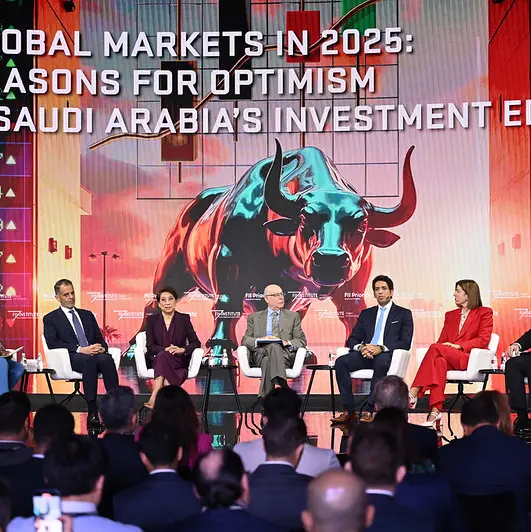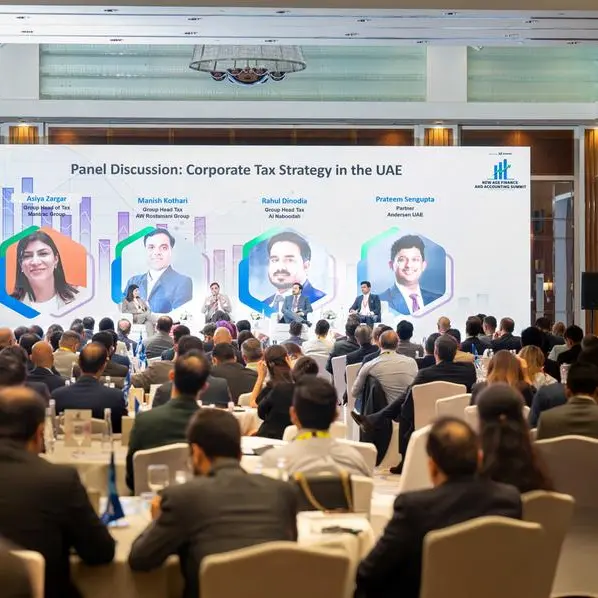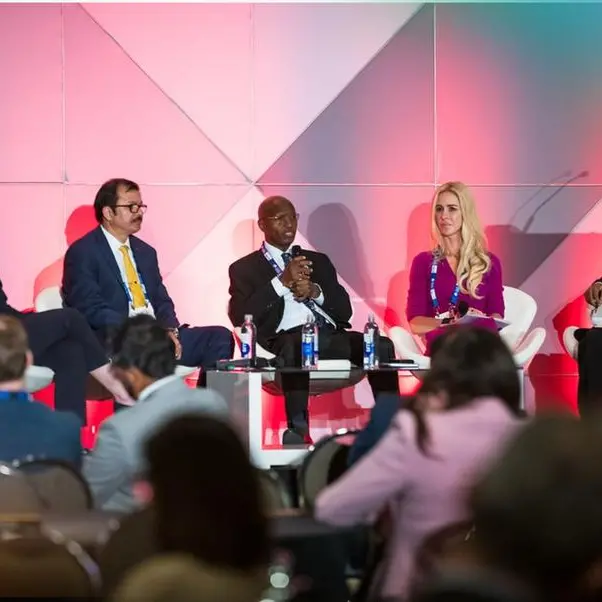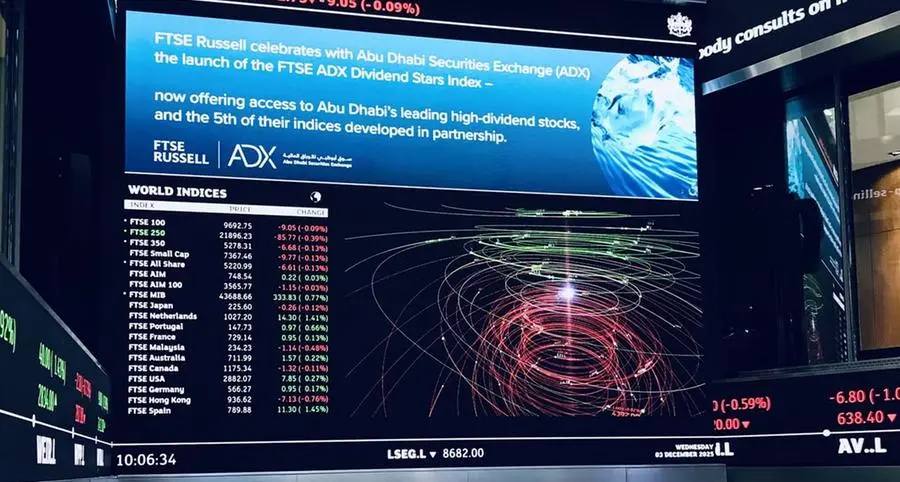PHOTO
- Egypt, Saudi Arabia, UAE setting new benchmarks for sustainable design and the development of new smart cities of the future
Cairo, Egypt:– Schneider Electric, a global pioneer utilizing digital transformation for enhanced energy management, automation and sustainability, organized a session titled ‘Future of Cities’ at its Innovation Summit Middle East and Africa where future foresight experts and global corporate leaders have unanimously determined that the future of cities is digital and will be built around big data, renewable energy, electricity and smart mobility.
The speakers agreed that future cities – expected to include 70% of the world's population, which will reach 9.8 billion people by 2050 – can become integrated hubs for innovation, creativity, and better living standards. This aim demands guaranteeing sound strategic planning and coordination between the public and private sectors at all levels.
Digitization to drive value in smart cities
Luc Remont, Executive Vice President for International Operations at Schneider Electric, said cities have learned to work remotely and today's leaders think differently, especially after the Covid-19 pandemic. Dubai and the UAE have been working for many years to shape the future in all sectors, he said, added that it is setting the benchmark to become a sustainable nation.
Remont pointed to the importance of improving operational efficiency in cities of the future by continuously evaluating the efficiency in buildings, roads, data centres and infrastructure. He also stressed that creating value in real estate is achieved through sustainable and smart technologies for managing energy and resources. With many global markets working towards this direction, Remont noted that there are huge opportunities for renewable energy in the Middle East’s cities of the future.
Digital twinning and metaverse cities
Dr. Patrick Noack, Executive Director of Future, Foresight and Imagination at Dubai Future Foundation, stated that many cities, such as Dubai, were built according to a futuristic design and can forecast the best smart solutions at an early stage. Many cities can benefit from this advanced model in designing and building. Dr. Noack highlighted the importance of futuristic sustainable design across all blueprints and operations.
“Digital twinning in cities is crucial, alongside the digital imagination of their infrastructure,” he said. “This includes testing virtual metaverse cities' design and benefiting from them to experiment with engineer optimal smart solutions for designing sustainable future cities, especially since different cities need different solutions according to their needs.
“Smart global cities, including Dubai, are achieving major milestones in setting a benchmark for future cities. These milestones encompass modern roads equipped to stay ahead of future smart mobility solutions, such as smart, electric, and self-driving vehicles. Thus, Dubai remains prepared for various future solutions,” he added.
Data the backbone of scalable future cities
Dr. Ahmed Shalaby, CEO and Managing Director of Tatweer Misr, noted that the efforts of countries such as Egypt, UAE, and Saudi Arabia to develop new sustainable cities are a promising indicator.
“Large data centers are the backbone of smart and sustainable cities of the future as they employ data analysis using artificial intelligence to improve the lives of individuals and communities, and build scalable cities based on latest tech applications,” he said.
Shalaby pointed to Egypt’s 2052 vision, which aims to double urban development in Egypt from 7% to 14% by 2052 which includes developing 61 cities, of which 24 are new. with the government seeking to design them based on sustainability and smart solutions to provide a sustainable lifestyle. He called for the private sector to contribute to creating these sustainable opportunities for future cities to benefit everyone.
He also stated that efficient energy utilization begins in the early stages of design and development, ensuring smart project infrastructure is set in place. He added that sustainable measures are a core part of urban development plans, with a focus on natural lighting and air conditioning. He pointed out that these solutions, if combined with other smart solutions, can contribute to increasing energy efficiency by 50% in sustainability-centric projects. This, he said, would reflect positively in reduction of operating costs for both the developer and the customer by almost 30%.
Shalaby also noted that countries in the region are witnessing qualitative progress in mass transportation solutions to link all transportation systems together, stressing that Tatweer Misr provides integrated transportation systems in many of the communities it develops, ensuring access to all daily life services within 15 minutes.
Now in its fifth year, the Innovation Summit MEA is Schneider Electric’s flagship event, bringing together over 5,000 delegates to witness more than 50 sessions highlighting how businesses can leverage digitization and electrification for greater efficiency and a greener world for all.
-Ends-
About Schneider Electric
Schneider Electric is leading the Digital Transformation of Energy Management and Automation in Homes, Buildings, Data Centers, Infrastructure, and Industries. With global presence in over 100 countries, Schneider is the indisputable leader in Power Management – Medium Voltage, Low Voltage and Secure Power, and in Automation Systems. We provide integrated efficiency solutions, combining energy, automation, and software. In our global Ecosystem, we collaborate with the largest Partner, Integrator and Developer Community on our Open Platform to deliver real-time control and operational efficiency. We believe that great people and partners make Schneider a great company and that our commitment to Innovation, Diversity and Sustainability ensures that Life Is On everywhere, for everyone and at every moment.
For more information please visit: https://www.se.com/en/
